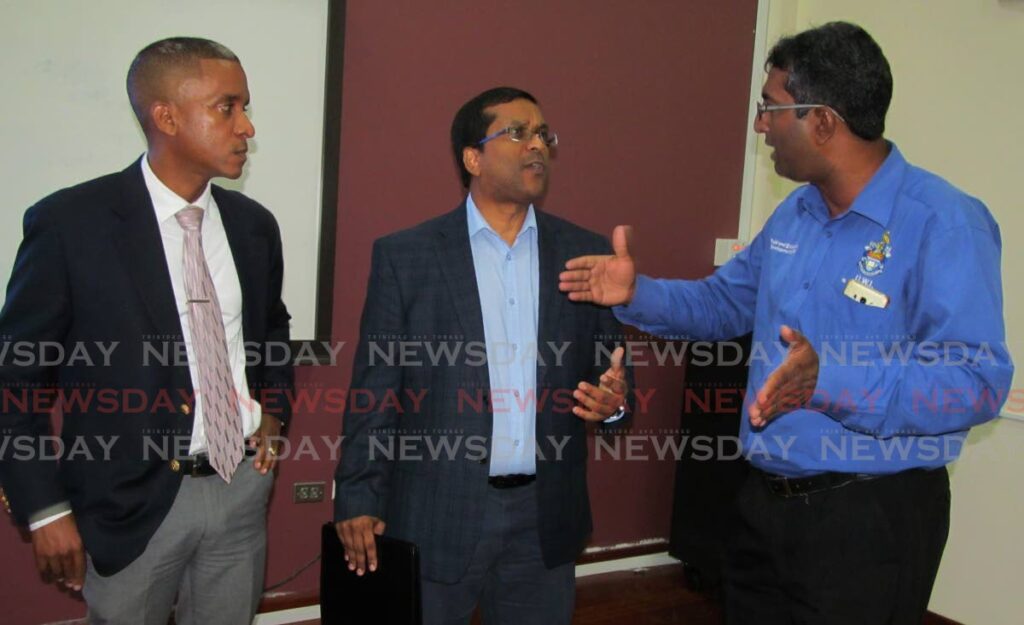Economists: Years of government assistance leave Trinis too spoilt

THREE senior economists said on Thursday that decades of subsidies, transfers and other forms of government assistance – to the tune of tens of billions of dollars – have made citizens spoilt.
This view comes three days after the Minister of Finance Colm Imbert announced in the budget a further cut on subsidies in the price of fuel and consequent increase in the price of premium and super gasoline, each by a dollar per litre, and 50 cents per litre for diesel.
Economists Dr Dave Seerattan, Dr Darren Conrad and Dr Marlene Attzs spoke during a post-budget virtual forum hosted by the Department of Economics, Faculty of Social Science, UWI St Augustine campus.
All agreed that after years of support from successive governments, citizens are now facing, if only in part, the actual real cost of many commodities.
"In some countries, with less resources available, there is a different mindset altogether," said Conrad. "They are able to make tough decisions and implement some of these measures. But it doesn’t fly here because we have become, for want of a better word, spoilt over the years.
Dependency syndrome
Attzs agreed, saying, “What has happened for us for 60 years is that successive governments have created a dependency syndrome.
“I think our country and its citizens need to understand what constitutes TT’s wealth. It is incumbent on us as a department to help with that conversation in terms of educating the population so when budget day happens people have a better platform in which they would be able to receive the information and have some kind of understanding of what is happening in the country.”
Seerattan said in years past, TT has experienced “supernormal” profits from energy sales and revenues, but times have changed and revenue and production are not what they used to be.
“Those times may come again, but right now we are not in that position,” he said.
“The problem with the fuel subsidy is that it is not sustainable in the long term. If you didn’t have the subsidies, you would have been able to do what Barbados is doing and offer assistance to people to meet their fuel and food bills – but we have subsidies in place already.”

Their views on society being spoilt by decades of government assistance, grants and subsidies come amid major condemnation on social media of a call by Sport Minister Shamfa Cudjoe for people to make greater sacrifices.
With the thinking that the fuel subsidy would sooner or later become unsustainable, Seerattan said there was an overall logic to what Imbert did in reducing government subsidies on fuel.
“If you had been looking at what the minister has been doing over a period of time, he has consistently scaled back the fuel subsidy. I believe any minister of finance finding himself in the position that he did, prior to 2022, would have done the same thing.”
The price of fuel has been increased six times over the past seven years.
Conrad claimed that TT households receive subsidies to the tune of $5,000 a year, while another speaker at the forum, Dr Regan Deonanan, highlighted that over the past ten years, transfers and subsidies averaged $28.2 billion per year. Wages paid by government averaged $9.1 billion per year.
In comparison, the gross fixed capital formation – the measure of the level of investment overall in the economy – is about $24.9 billion.
Some of these subsidies are in the form of education, electricity, fuel, healthcare and water prices.
“Some of the agencies or enterprises arguing for an increase in wages, I don’t know if they take into consideration some of the subsidies that they get.
"So let’s say the government plays devil’s advocate and says ‘OK, we’ll give you 19 per cent (wage increase) but we will take away all the subsidies,’ where does that leave the household? So we need to consider what we are asking for and what is sustainable,” Conrad said.
“We are borrowing money, after all, to pay public servants’ salaries,” Seerattan reminded. “We have to wean ourselves off of these subsidies while protecting the most vulnerable.”
Balance needed
While the economists agreed excess subsidies were not sustainable, they also agreed that a reasonable balance between walking back on these subsidies and protection of the more vulnerable was needed, and that balance may not have been met in this budget.
Attzs highlighted in her presentation a breakdown of the average monthly salary of a person working for the minimum wage, which amounted to $2,677.80. By comparison, basic living expenses amounted to an average of $7,500.
“We as economists understand there were certain measures that had to take place for us to try to get the economy back on some stabilised footing, but I think insufficient attention was paid to the vulnerable in society.
"If we want to move forward we have to ensure that as few TT citizens as possible are left behind,” she said.
Conrad suggested government take the approach of being more targeted when applying subsidies, since currently, they are given regardless of income bracket.
Seerattan said the system of aggregate wage negotiations also needs to change so that the lion’s share of allocated money could be given to lower-income workers.
Ultimately, the economists agreed there needs to be a focus on the vulnerable.
“Those people in the lowest rungs of society are the people most at risk,” Seerattan said.

Comments
"Economists: Years of government assistance leave Trinis too spoilt"